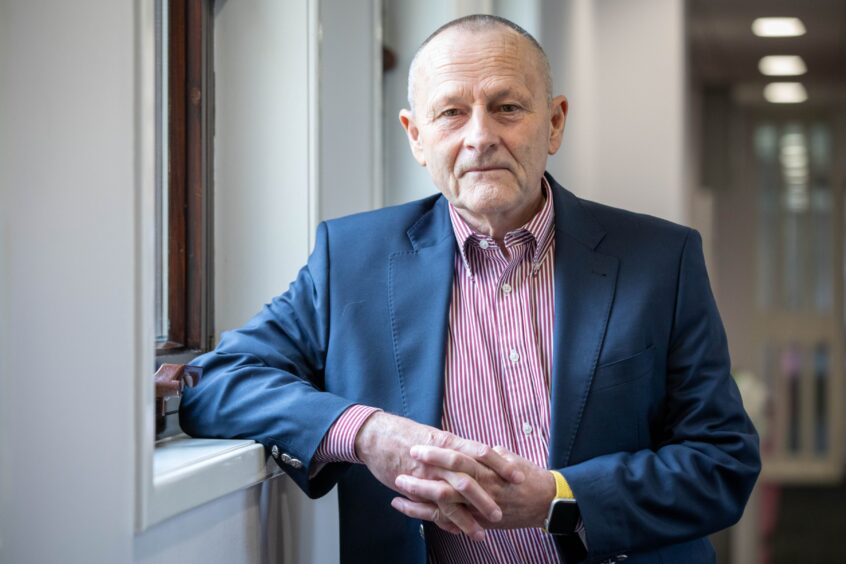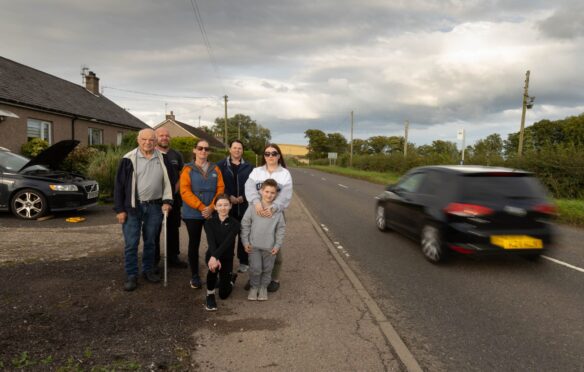Parole bosses say the Scottish Government could change the law to prevent criminals like Angus killer Tasmin Glass being released halfway through their sentence.
In an exclusive interview with The Courier, the chairman and the chief executive of The Parole Board for Scotland discussed our A Voice for Victims campaign which has called for reforms to the current system.
In the first of a three-part series, the parole chiefs explain the legislation by which they are bound and the weight they are allowed to place on victim testimony.
‘They could change the law’
The decision last month to release notorious killer Tasmin Glass, just five years into her 10-year sentence for culpable homicide, sent shockwaves through Tayside.
It made many question why Glass was even eligible for parole at such an early date.
Colin Spivey, chief executive of the parole board, said that rule is a matter of legislation to which the board must adhere.
He told The Courier: “People don’t apply for parole, I think that’s really important and a misconception that is out there.
“They’re referred automatically and the board is required to consider the case.
“It’s not our choice to consider them at the halfway point, that’s just the way that the legislation is made.”
The chief executive explained that parliament could change legislation so determinate sentence prisoners – those jailed for more than four years but not on life restriction orders – are not automatically referred to the board at the halfway stage.
It is the type of sentence which Glass and Perth killer Robbie Smullen were given.
“They could change the law,” said Mr Spivey.
John Watt, the parole board chairman, agreed with his colleague.
The former procurator fiscal said: “If they decided parole could only be considered from the two-thirds point then that’s what would happen.
“That’s a government policy decision and one for parliament to decide on.”
‘Misunderstanding’ over victim representations
The decision to release Glass was out of step with both public opinion and that of her victim, Steven Donaldson’s, family.
But the board says the reasoning behind that is also down to the legislation.
Under current laws, the panel is only allowed to consider how much risk the offender poses to the general public and if that risk can be managed safely in the community.
Parole board chairman Mr Watt admitted this may cause a misunderstanding with victims regarding how much sway their representations have.
He told The Courier: “At the moment the sole criteria is risk.
“Whatever a victim may say which does not bear on risk is not likely to be taken into account in any significant way because it isn’t relative to the decision we have to make.
“The decisions we make are based on the facts of the case and the law that applies.
“Once we apply the two of those we come up with a decision on release.
“We will take account of what victims say but that’s not the same as applying weight to what the victims say.
“If the victim has something valid to say on risk then we’ll place weight on that – but if there’s not something valid about risk the law doesn’t really allow us to apply any weight to it.
“And in that there might be a misunderstanding.”
Victims are ‘at best a witness’
The parole board chairman explained that victims are referred to as third parties in the process and are “at best” a witness.
With risk currently being the sole criteria upon which decisions are made, he is unsure how victims’ voices could be amplified in the proceedings.
During The Courier’s campaign, many victims have said they believe their representations are merely a tick-box exercise.
Again, a legislation change would be needed for victims voices to hold more weight in the process.
Mr Watt said: “I think it would be down to parliament to decide whether it wants to extend the voice of victims in the process – but that would itself bring problems.
“It’s difficult to see, in light of the structure and how it has developed, how you can look at anything other than risk.
“I’ve seen some comments that say they shouldn’t be released at the halfway stage and the answer to that is the law allows it, the law requires us to asses the situation and if we’re satisfied that the risk can be safely managed then the law requires us to release.
“Now, if there had to be a different set of tests then there would be a different conclusion.
“But we deal with the law as it is and not as somebody else might like it to be.”















Conversation